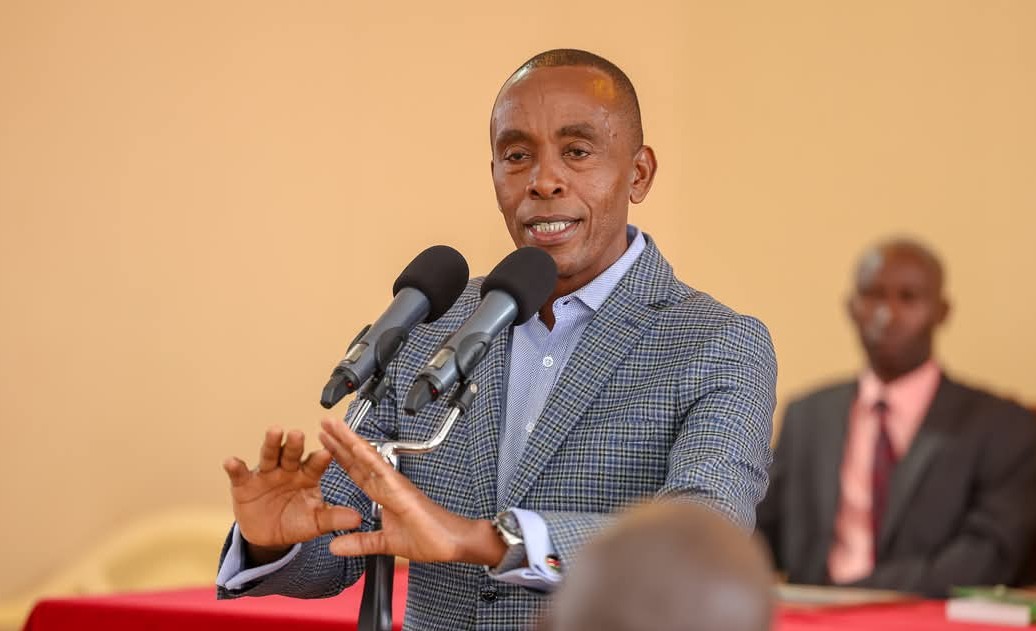
 Kiambu Governor Kimani Wamatangi. /FILE
Kiambu Governor Kimani Wamatangi. /FILEKiambu Governor Kimani Wamatangi says the Kiambu Level 4 Hospital did not record any maternal deaths between January and July this year, a development he described as significant for the county’s health sector.
Maternal death refers to the death of a woman during pregnancy, childbirth, or shortly after delivery due to complications related to pregnancy or its management.
Addressing the county assembly on Wednesday, Wamatangi said his administration has strengthened health service delivery since he assumed office in 2022, leading to a reduction in preventable deaths.
“When we assumed office, the emergency department was struggling. Today, we have 19 fully equipped, state-of-the-art ambulances that function as mobile ICUs operated by qualified personnel,” he told the assembly.
He said the county also has an ambulance dedicated exclusively to maternity care, ensuring that mothers and infants receive timely attention.
According to him, this contributed to the reported zero maternal deaths at Kiambu Level 4 Hospital between January and July 2025.
Wamatangi added that the county previously relied on leased ambulances that cost taxpayers Sh30 million annually, funds that are now directed toward improving health infrastructure.
He further stated that the reported milestone had drawn recognition from the Federation of International Gynaecologists and Obstetricians (FIGO), the 80th United Nations General Assembly (UNGA) in New York, and the Devolution Conference held in Homa Bay.
“The mention was not about anything else; it was about an achievement that had not been thought possible in a developing country like Kenya,” he said.
Globally, the World Health Organization (WHO) notes that maternal mortality remains “unacceptably high,” with about 260,000 women dying during and following pregnancy and childbirth in 2023. Sub-Saharan Africa accounted for about 70 per cent of those deaths, roughly 182,000 cases.
WHO attributes the high maternal death rates in some regions to inequalities in access to quality health services, adding that most complications leading to maternal fatalities are preventable or treatable.
Major causes include severe bleeding, infections, high blood pressure during pregnancy, complications of delivery, and unsafe abortion.
Wamatangi’s remarks come amid a dispute over maternal and newborn health statistics in the county.
The Kenya Medical Practitioners, Pharmacists and Dentists Union (KMPDU) has alleged that 136 newborns died in Kiambu County hospitals between May and August.
The union, which has announced a strike beginning October 26, attributed the deaths largely to a doctors’ strike and a shortage of medical staff following the withdrawal of 697 medical interns nationwide by the Ministry of Health.
“The situation is dire. In September alone, more than 50 babies died in just two hospitals,” KMPDU Kiambu Central chairperson Dr James Githinji said, citing internal data.
He linked the deaths to staff shortages, lack of essential drugs, and delayed treatment.
KMPDU Secretary-General Dr Davji Atellah said most of the neonatal deaths were due to preventable conditions such as sepsis, hospital-acquired pneumonia, and complications of premature birth.
The union claimed Kiambu Level 5 Hospital recorded 68 infant deaths, while Thika Level 5 Hospital had 34 neonatal deaths in September.
However, Kiambu County Health Officer Patrick Nyagah disputed the figures, terming them “exaggerated.”
“When we look at these numbers, we find that in every category they have been doubled. These are alarmist figures that do not reflect reality,” Nyagah said during an interview on NTV.
Council of Governors (CoG) chairperson and Wajir Governor Ahmed Abdullahi also defended Wamatangi, saying the county’s health system remains functional and that reports of mass infant deaths had not been independently verified.
















